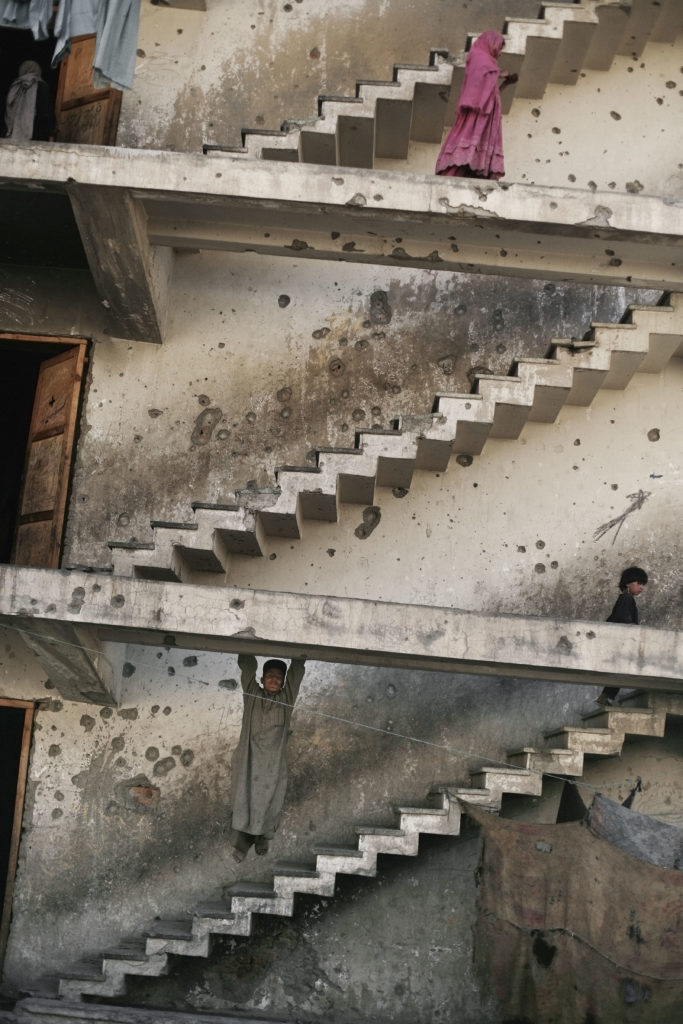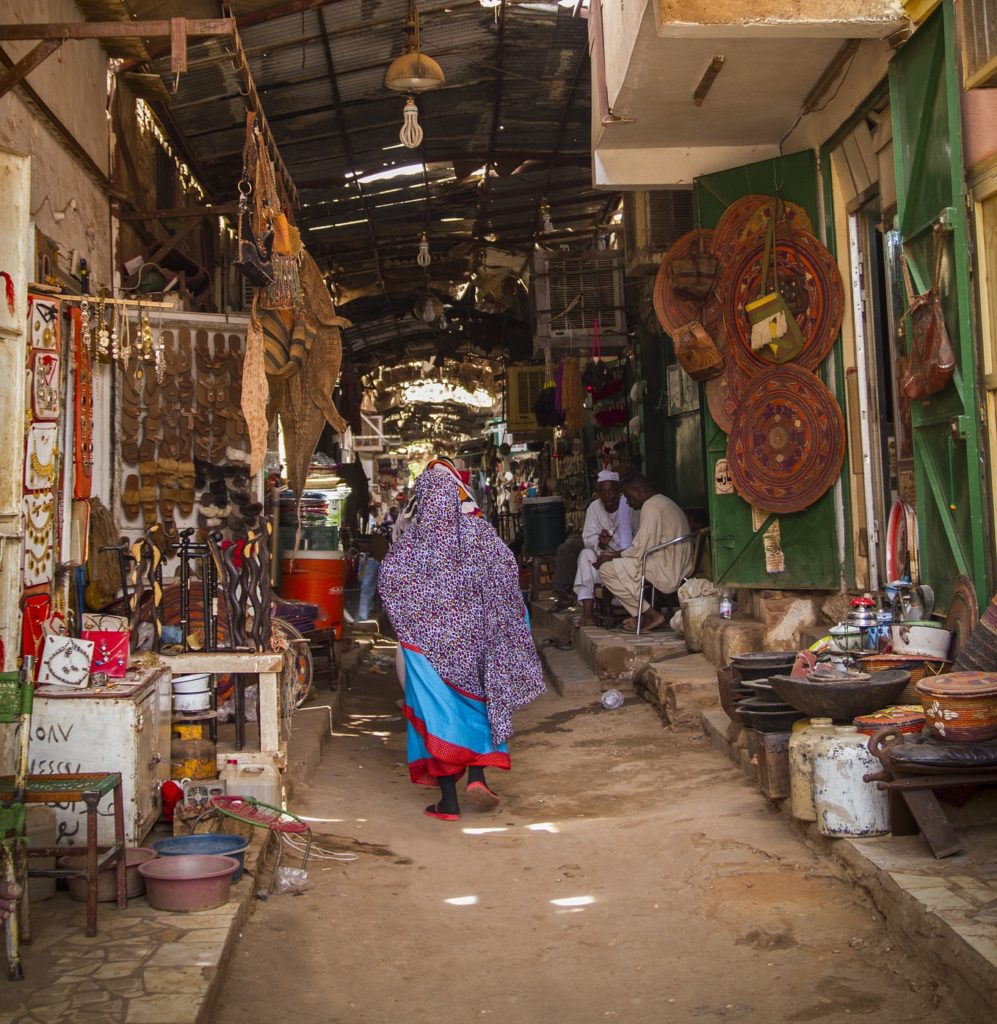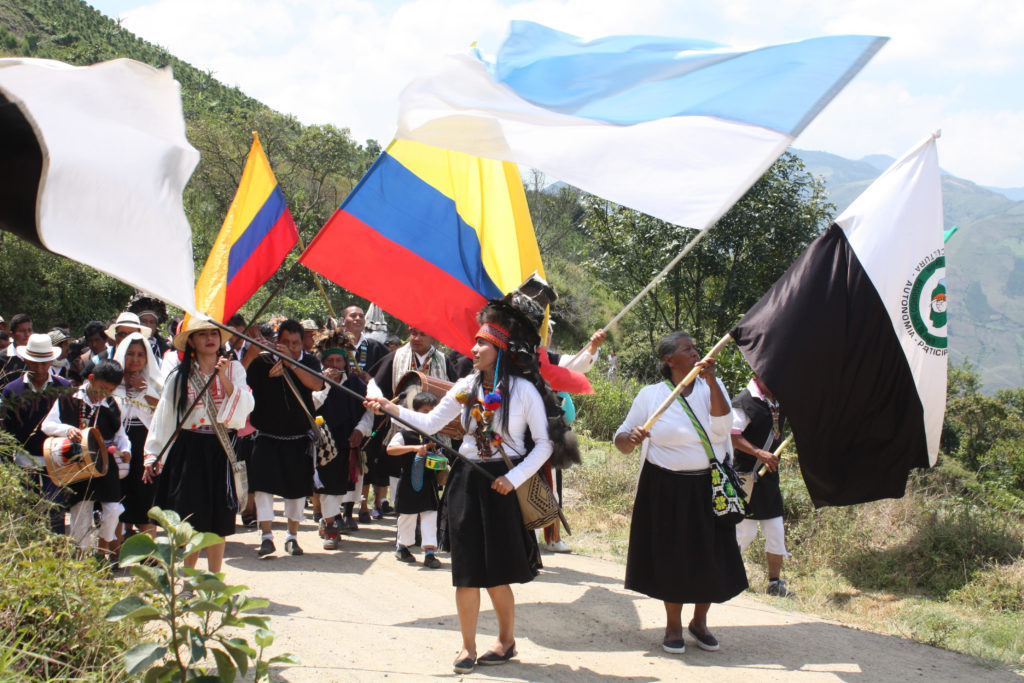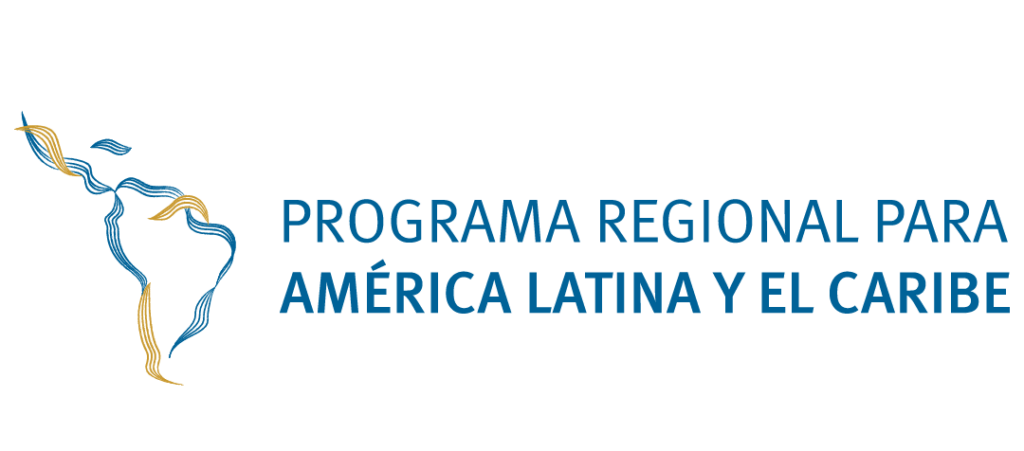Célia es la nueva fellow del Grupo de Trabajo sobre Derecho y Paz (LPPG) de IFIT en Bogotá. Es franco-argelina y actualmente cursa una Maestría en Asuntos Internacionales en la School of International and Public Affairs (SIPA) de la Universidad de Columbia, donde se especializa en Resolución de Conflictos Internacionales. Su trabajo académico se centra en estrategias de mediación adaptativa, justicia transicional y procesos de paz; recientemente ha investigado las negociaciones entre Ucrania y Rusia en 2025 lideradas por la administración Trump, así como el Acuerdo de Paz de Colombia de 2016.
Antes de incorporarse a IFIT, trabajó en diplomacia multilateral y negociaciones políticas en las Misiones Permanentes de Maldivas y Omán ante las Naciones Unidas, así como en el Instituto de las Naciones Unidas para la Formación Profesional y la Investigación (UNITAR) en Nueva York. También ha participado activamente en iniciativas universitarias relacionadas con la mediación, la igualdad de género y la resolución de conflictos.
Está muy entusiasmada de trabajar con el equipo de Bogotá en el LPPG y en las temáticas regionales de América Latina, y espera fortalecer su experiencia en terreno en la región a través de esta pasantía.
Idiomas de trabajo: Español, Inglés y Francés.
You may also be interested in
Célia is the new fellow with IFIT’s Law and Peace Practice Group (LPPG) in Bogotá. She is French-Algerian, and currently pursuing a Master of International Affairs at Columbia University’s School of International and Public Affairs (SIPA). There, she specialises in International Conflict Resolution. Her academic work focuses on adaptive mediation strategies, transitional justice, and peace processes; most recently exploring the 2025 Ukraine-Russia negotiations led by the Trump Admin, as well as the 2016 Colombian Peace Accord.
Prior to joining IFIT, she worked on multilateral diplomacy and policy negotiations at the Permanent Missions of the Maldives and Oman to the United Nations, as well as with the UN Institute for Training and Research (UNITAR) in New York. She has also been involved in Columbia University campus initiatives related to mediation, gender equality, and conflict resolution.
She is very excited to work with the Bogota Team on LPPG and on-going LATAM thematics, and looks forward to strengthening her field-based experience in Latin America through this internship.
Working languages: Spanish, English and French.
You may also be interested in
Angie Rodríguez es pasante del Programa Regional para América Latina del Institute for Integrated Transitions. Angie estudiante de último año en la Escuela de Relaciones Públicas e Internacionales de la Universidad de Princeton con énfasis en estudios Latinoamericanos y Español. Sus áreas de interés incluyen migración, América Latina, y educación.
Anteriormente, Angie trabajó con El Fondo Latinoamericano de Defensa Legal y Educación, contribuyendo a sus esfuerzos de proveer servicios para los inmigrantes. Ella también pasa su tiempo apoyando a estudiantes de bajo ingresos mientras navegan el proceso de admisiones universitarias y también realiza proyectos de servicio con el Consejo de Liderazgo Cívico de Princeton. Adicionalmente, Angie está involucrada en SPLASH, una organización que proporciona una experiencia de aprendizaje para estudiantes de secundaria mientras asisten a cursos dirigidos por estudiantes de Princeton.
Idiomas de trabajo: inglés y español
You may also be interested in
Ian Liu serves as a Summer Intern at the Institute for Integrated Transitions (IFIT).
He is currently an undergraduate student at Princeton University, studying Public and International Affairs. Ian brings experience in research and public policy development through his academic work and professional roles, including as a research assistant for several Princeton centers such as the Center for the Study of Democratic Politics and the Niehaus Center for Globalization and Governance. He has also engaged with the United Nations in New York.
Working languages: English, Mandarine, and French.
You may also be interested in
Erin William serves as a Summer Intern at the Institute for Integrated Transitions (IFIT).
She is an undergraduate at Princeton University pursuing a degree in International Affairs, with minors in Global Health Policy and History and the Practice of Diplomacy. As a pre-law student, her academic interests focus on how legal and policy frameworks respond to crisis, displacement, and exploitative systems, with a particular emphasis on international law and state accountability.
Before joining IFIT, Erin interned at the International Institute for Democracy and Electoral Assistance (IDEA), where she contributed to research on democratic resilience and the impact of climate change on elections. She also worked as an editorial assistant for the Northeast Kansas City News Chamber, where she reported on local elections and highlighted the issue of illegal refugee dumping in underserved neighborhoods. At Princeton, she writes for the Princeton Legal Journal with a focus on international treaty compliance. She is also a member of the Princeton Debate Panel and Business Today, and serves as Head of Events for the African Student Association.
Working languages: English and Spanish.
You may also be interested in
Angie Rodriguez is an intern with the Institute for Integrated Transitions (IFIT) in their Bogotá office. She is a rising senior studying in Princeton University’s School of Public and International Affairs with minors in Latin American Studies and Spanish. Her interests lie in immigration, the Latin American region, and education.
Angie has previously worked with the Latin American Legal Defense and Education Fund, aiding in their efforts to provide a range of services to immigrants in the area. She also spends her time supporting low-income high school students as they navigate the college admissions process and carrying out service projects with Princeton’s Civic Leadership Council. Additionally, Angie is involved in SPLASH, an organization seeking to provide a learning experience for high school students as they attend student-led courses at Princeton.
Working languages: Spanish and English.
You may also be interested in
Nathalie Bussemaker is an Extern with the Institute for Integrated Transitions. She is currently completing a Master in Public Policy at the Harvard Kennedy School and holds a BA in Global Affairs and History from Yale.
Nathalie also serves as the executive director of Ventures Beyond Borders, a nonprofit focused on refugee entrepreneurship. She previously worked at Schmidt Futures, a philanthropic initiative of Eric Schmidt. Nathalie also spent a year in Jordan as a Parker Huang Postgraduate Fellow and has interned with the US State Department, the Council on Foreign Relations, and the Middle East Institute.
Working languages: English and Dutch.
You may also be interested in
Sebastián es pasante del Instituto para las Transiciones Integrales (IFIT) en Bogotá, Colombia. Se unió como miembro del equipo de justicia transicional.
Antes de unirse a IFIT, trabajó en la Clínica Jurídica para Migrantes de la Universidad de los Andes, brindando asistencia legal a personas con problemas relacionados con inmigración. También ha trabajado como asistente de investigación en temas relacionados con derecho, arte y cómics y justicia transicional. Actualmente, se desempeña como tutor (profesor asistente) en la Universidad de Los Andes.
Sebastián está próximo a graduarse de Derecho con una opción (minor) en economía de la Universidad de los Andes, Colombia. Sus áreas de interés incluyen el derecho internacional público, los derechos humanos, la justicia transicional, la teoría jurídica y el derecho comparado.
Idiomas de trabajo: inglés i español.
You may also be interested in
Sebastián Aldana Méndez is an Intern at at the Institute for Integrated Transitions (IFIT) in Bogotá, Colombia, where he works with the transitional justice team.
Before joining IFIT, he worked at the Legal Clinic for Migrants at the Universidad de los Andes, providing legal assistance to individuals facing immigration-related issues. He has also worked as a research assistant on topics related to law, art, and transitional justice. Currently, he serves as a tutor (teaching assistant) at the Universidad de los Andes.
Sebastián is about to graduate as a lawyer with a minor in Economics from the Universidad de los Andes, Colombia. His areas of interest include public international law, human rights, transitional justice, philosophy of law and comparative law.
Working languages: English and Spanish.
You may also be interested in
María Alejandra Fonseca Manosalva es pasante en el Institute for Integrated Transitions (IFIT). Está basada en la oficina de Bogotá, donde apoya al equipo del trabajo del Fondo de Expertos de Colombia.
Antes de unirse a IFIT, María Alejandra trabajó en la Clínica Jurídica para Migrantes de la Universidad de los Andes, brindando asistencia legal a personas de bajos ingresos con problemas relacionados con inmigración. También ha participado en roles académicos y de liderazgo, incluyendo su labor como representante estudiantil en la universidad.
María Alejandra está próxima a graduarse de Derecho y Ciencia Política en la Universidad de los Andes, Colombia. Sus áreas de interés incluyen el derecho internacional, los derechos humanos, la justicia transicional, los estudios de género y las políticas migratorias.
Idiomas de trabajo: inglés i español.












